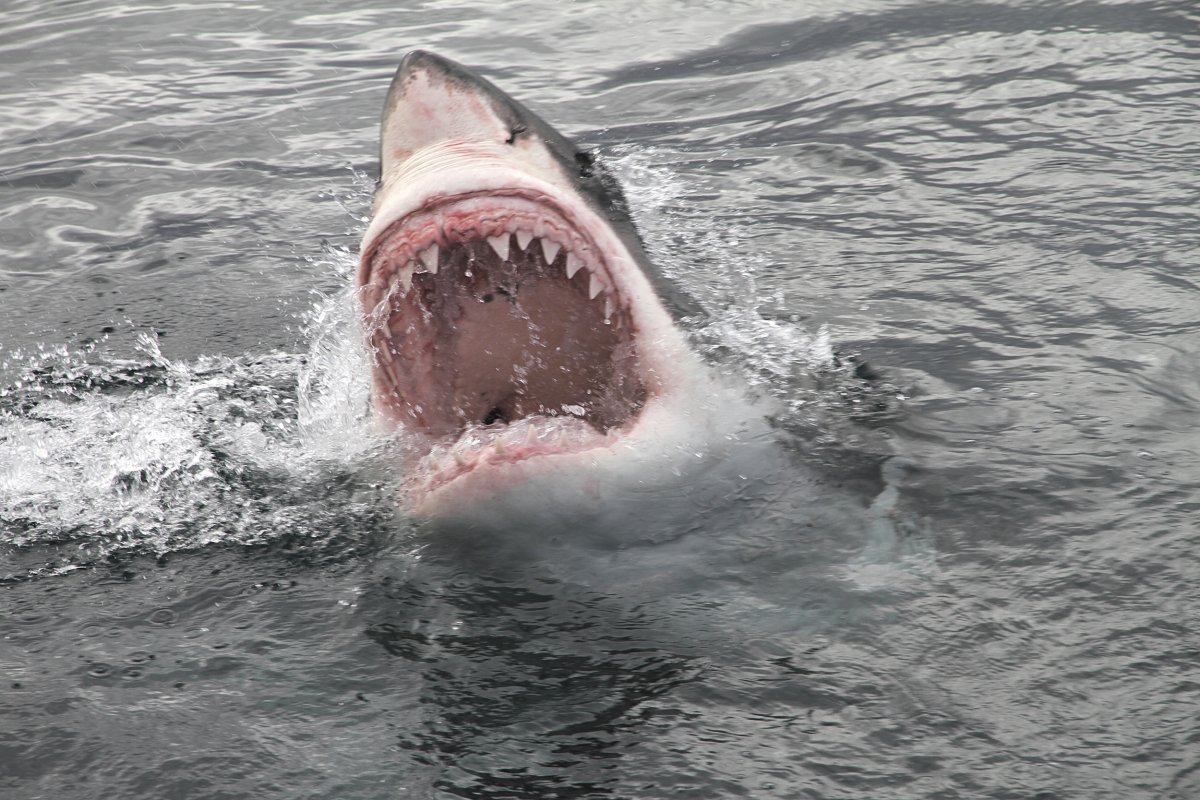A shark has leapt from the water and bit off the head of a stranded whale in New Zealand while a beachgoer was trying to send it back out to sea.
A mother pygmy sperm whale and its calf stranded between Māhia Beach and Opoutama on New Zealand's Māhia Peninsula near Hawke's Bay over the weekend. A beachgoer had been attempting to help the whale and its calf make their way back out to sea when the shark leapt out of the water, local police officer Chad Prentice told the NZ Herald. Although the exact species of shark cannot be confirmed, it was likely a great white shark, the news outlet reported.
The shark ripped the entire head off the mother whale, killing it in seconds, the officer continued.
"I am told when the shark hit the whale the first time it was like lightning, and it came out of the water and took its whole head off," Prentice told the NZ Herald. "The water was red and about 30 seconds later the shark came back and hit the whole thing and took it out to sea—there is not even an ounce of remains left."

Witnesses to the incident said the shark had been over 16 feet long, the Herald reported. Luckily the person who had been in the water at the time of the attack was unharmed.
The mother whale had been about 9 feet long, the news outlet reported, making her quite a large prey for the shark to take on.
The shark disappeared after taking its prey and has not been seen since, the NZ Herald reported. Officials are warning beachgoers in the area to be wary when going into the water.
The mother's calf, which was still stranded, was euthanized by officials. Its body was saved for future scientific research.
It is not uncommon for marine mammals to strand. This happens all over the world for a variety of reasons including illness, injury or disorientation. Several New Zealand beaches see more strandings than is usual.
Sperm whales are one of the most common species to strand. Often, it is very hard to refloat these animals back into the depths and more often then not, they end up dying.
This regularly presents an opportunity for sharks to feast on this whale species, as they are often quite small. This mother whale also would have been in a vulnerable position, and it is also likely that the shark knew she was sick—an easy meal for the shark.
Do you have a tip on a science story that Newsweek should be covering? Do you have a question about sharks? Let us know via science@newsweek.com.
Uncommon Knowledge
Newsweek is committed to challenging conventional wisdom and finding connections in the search for common ground.
Newsweek is committed to challenging conventional wisdom and finding connections in the search for common ground.
About the writer
Robyn White is a Newsweek Nature Reporter based in London, UK. Her focus is reporting on wildlife, science and the ... Read more
To read how Newsweek uses AI as a newsroom tool, Click here.






